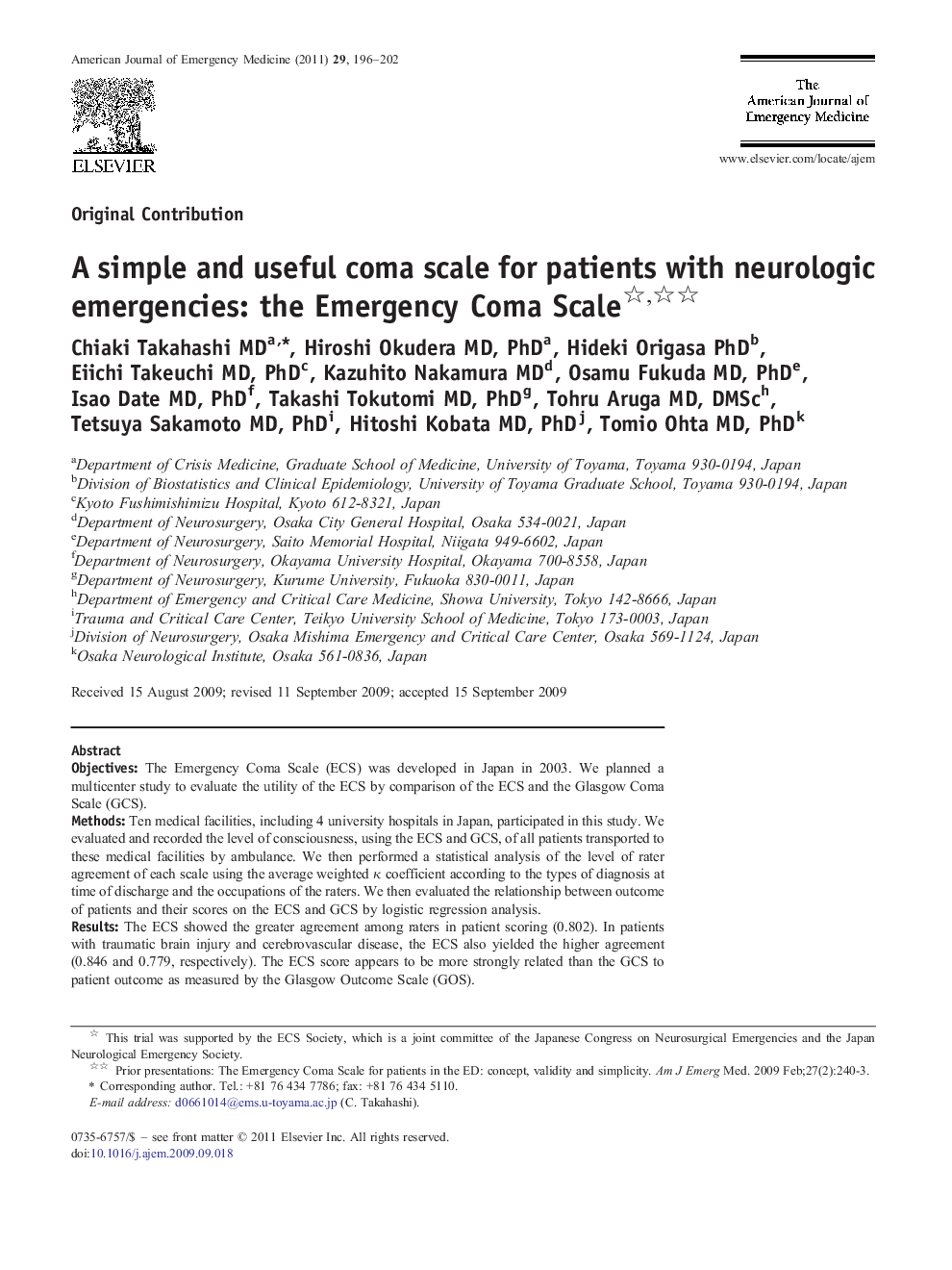| Article ID | Journal | Published Year | Pages | File Type |
|---|---|---|---|---|
| 3226330 | The American Journal of Emergency Medicine | 2011 | 7 Pages |
ObjectivesThe Emergency Coma Scale (ECS) was developed in Japan in 2003. We planned a multicenter study to evaluate the utility of the ECS by comparison of the ECS and the Glasgow Coma Scale (GCS).MethodsTen medical facilities, including 4 university hospitals in Japan, participated in this study. We evaluated and recorded the level of consciousness, using the ECS and GCS, of all patients transported to these medical facilities by ambulance. We then performed a statistical analysis of the level of rater agreement of each scale using the average weighted κ coefficient according to the types of diagnosis at time of discharge and the occupations of the raters. We then evaluated the relationship between outcome of patients and their scores on the ECS and GCS by logistic regression analysis.ResultsThe ECS showed the greater agreement among raters in patient scoring (0.802). In patients with traumatic brain injury and cerebrovascular disease, the ECS also yielded the higher agreement (0.846 and 0.779, respectively). The ECS score appears to be more strongly related than the GCS to patient outcome as measured by the Glasgow Outcome Scale (GOS).ConclusionsOur results showed that the ECS is a simple and readily understandable coma scale for a wide range of professionals in the field of neurologic emergencies. Furthermore, ECS appears to be suitable for evaluating patients in neurologic emergency settings.
